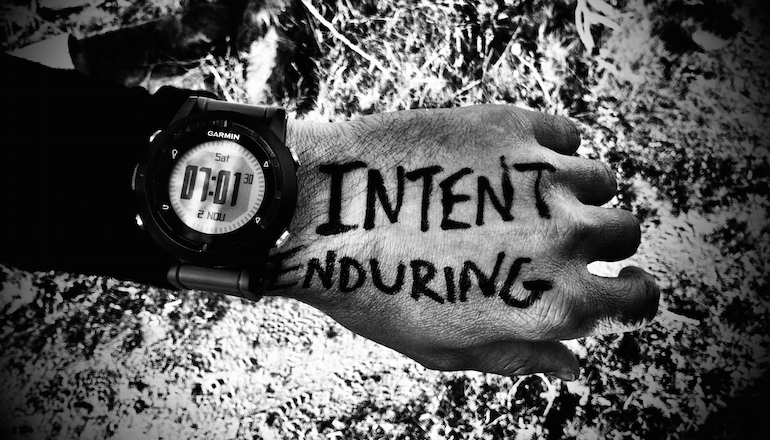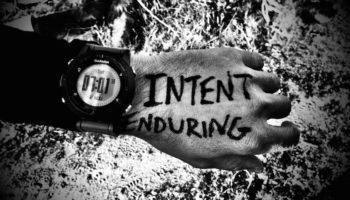 Reading Time: 7 minutes
Reading Time: 7 minutesKyle Williams does unreasonable things.
A 38-year old Australian, Kyle holds several mountain climbing records of his own devising, none of them entirely logical.
In late 2013, he climbed all twenty-six of Australia’s 2000-meter peaks in forty-eight hours, covering more than 130 kilometers. During the effort (which he dubbed the “A2K”) Kyle suffered profusely, with sleep an impossibility and the weather non-cooperative. He’d tried the journey twice before, only succeeding on his third attempt, climbing through snow, sub-zero temperatures, and persistent hallucinations.
I asked him why he would subject himself to this misery, only to find out he isn’t done. In three weeks, Kyle plans to climb the highest peak in each of Australia’s eight territories (including one accessible only by permission of the local Aboriginal tribe).
The time to beat is 6 days and 20 hours, with logistics that are hard to fathom: 13,000 kilometers of flying, 3500 kilometers of driving, and 150 kilometers of mountain climbing. Simple division tells you this is unreasonable, even if one has a battalion’s worth of support.
Kyle doesn’t; he’s planning the trip himself, with the aid of just one other person.
You would be forgiven for dismissing Kyle as a screw-loose Army vet pursuing esoteric records on a continent full of small mountains. I nearly did. Australia’s Mount Kosciuszko (the crux of Kyle’s A2K journey and the highest in Oz at 2,228 meters) is slightly more than a quarter of Everest’s height, and a mere third the height of Alaska’s Denali.
Given the diminutive size of Australia’s peaks, odds are good that Kyle will not go down in history as one of the world’s great mountaineers. Nonetheless, there’s something poetic about his journeys, especially considering their compressed nature. Why in the world would you try to cover an entire continent’s worth of mountains in less than a week? Why forego sleep and endure hallucinations in order to rush up twenty-six peaks in forty-eight hours?
Time aside, why do this at all? Only Kyle knows, and he’s about to explain himself.
Two seconds in, and I can see Kyle Williams is not climbing mountains for the money. When our Skype window opens at the prescribed time, Kyle looks fresh out of bed, his hair rumpled and his eyes sleepy. He’s wearing a dark t-shirt, and as near as I can tell, there are no decorations on the white walls behind him. Nothing on my screen screams “lucrative mountaineering career” as Kyle plugs in a pair of stock Apple headphones, says hello, and immediately apologizes for the “shit internet in Australia” in the event that we get cut off.
I start our conversation with the light stuff: age, occupation, training. Kyle joined the Australian Army at nineteen, the journey to Basic his first trip away from his childhood home (Longford, Victoria, population 929). Despite the option for a twelve-month tour, Kyle signed up for four years, and in the process “met some great people and did some things most people don’t.”
Pressed for details on character formation and his time in the Army, he gives me this:
“The military can turn someone from a civilian into a fighter, but it doesn’t automatically turn them into an elite person. It builds on qualities that are already present, and if you don’t have those qualities, you’ll just be run of the mill. I had them, and the army taught me that to succeed, you need to be consistent and put in the work, even when you don’t want to. You work because you don’t want to let your mates down at 2:00 a.m. You look after your mates.”
Kyle Williams is a hard case; signing up for the long tour when the short tour will do. He believes he has elite qualities, and of course, he doesn’t want to let anyone down.
I push my advantage and ask Kyle what’s up with all the forays into the Snowy Mountains, the fifty-some-odd trips he’s taken into Australia’s Great Dividing Range, the home of all twenty-six of those 2000-meter peaks. Why the mountain theme?
“I think mountains are a metaphor for life. Overcoming an obstacle, going from the bottom to the top, putting one foot in front of the other, grinding. If you want to achieve something in life, it’s about having to grind through an obstacle.”
To my ear, this rings true (if somewhat stereotypical), but at least Kyle and I are going into the metaphorical mountains together, and I’m getting excited. I about to meet the man without the veneer.
I ask him why the time constraints, the records, why he wouldn’t just allow for however long it takes, why everything has to be a world first. His answer makes me reconsider my original supposition, that this is a guy bagging no-name peaks in a no-name mountain range:
“Time and duration take you out of your comfort zone. Doing something when you’ve been sleep-deprived is when you transcend into mental toughness. Anyone can do it fresh. Can you do it without sleeping for 48 hours? That’s when you notice how strong you really are.”
Kyle has clearly had a rough go in the Snowies, but he keeps going back, so I ask him about the demons, the hallucinations, what he does when the voices in his head tell him to stop, to sleep, to quit. His answer forever converts me from being a doubter.
“I had two cracks at A2K before I succeeded. Both times, I had demons in my head saying ‘You can’t go that far. Why are you doing this?’ I thought maybe I wasn’t strong enough. I thought those negative thoughts were a sign of weakness.
”Then I reflected on the experiences. Everyone, whether a gold medal athlete or just a regular person, will have negative thoughts. It’s not weakness. The difference between those who succeed and those who don’t isn’t the thoughts. It’s what you do in the moment you have the thoughts.
“You can accept (existence of) the thought, and then you have to put one foot in front of the other. You learn that to achieve, you have to get through it.”
Warming to his philosophy, I ask for proof of toughness, continuing on when you want to quit. Kyle tells me a story of a 2007 climb on Mount Kosciuszko, a 25-kilometer hike interrupted by a freak storm.
“Halfway through, a blizzard blew in, visibility went to zero, my hands were freezing. There was lightning and rain. I was shit scared. I didn’t know if I was going to make it out, but when the weather gets bad, the trial doesn’t end. The physical stuff gets you out on the trail, but when crazy weather comes in, it’s mental.”
I’m beginning to suspect that he likes this stuff, the trial, the hardship. As he tells me the Kosciuszko story, I can hear the joy of recounting in his voice, and the wry smile on my screen confirms it. Kyle Williams likes misery.
I ask him how he feels the day after, if there’s a letdown from achieving something like the A2K, completing something you’ve poured all your energy into it. Now, he lets me all the way in. He shows me a glimpse of his soul.
“Anyone that’s done anything epic, there’s that initial euphoria. You’re ten feet tall, bulletproof, happy, relieved. Your senses are heightened. Then two or three days later, there’s a letdown. You go back to the monotony and there’s a depressed funk. What do I do now?
“If you want to continue, you’ve got to know what your ‘why’ is. If you don’t know why, you’ll struggle to get out of bed, struggle to get through the training. (For me), the definition of masculinity is overcoming struggle. It’s a basic human need. If you don’t fuel that, you’re missing out on something. Trying to achieve a goal makes me feel alive. If I didn’t have that, life becomes mundane.”
Here on my Skype screen, a man like many others, full of doubts and demons and quiet pride, yet doing things other people just don’t do.
This is a 38-year old who climbs mountains to feed his why, despite the folly of crossing thousands of kilometers in mere days, despite the fact that he climbs on a Continent that dotted in 2000-meter peaks. This is a man driven by the need to overcome and achieve, lost without the next goal, always in pursuit of the next record.
Listening to him talk, I realize that Kyle’s mountain-bagging is just a single expression of a need that exists in all of us: to do something worthwhile, to put our name in the record book while there’s still time left on the clock. I can hardly fault him that, no matter how unreasonable his adventures may seem.
During the third A2K attempt, Kyle had two words written on his left hand: “intent” and “enduring.” It was a reminder of his why, a weapon against the demons that had stopped him on two previous attempts. It was a talisman to stop the voices. That time, the third time, Kyle crossed the finish line, and the demons were silenced, if only for a day.






